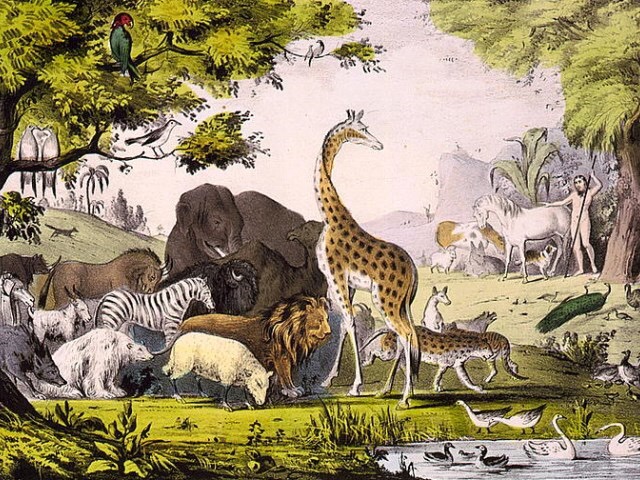I never post disturbing pictures of animals, on principle. That’s why I passed up sharing a post from Mercy for Animals on Facebook this morning even though it moved me deeply. I changed my mind later and went back to find the post but couldn’t. Here was the thought I had and the reason I decided to share after all:
In the post, a name was given to each animal. Of course animals on factory farms don’t really have names. They are commodities, and I believe this commoditization of our fellow creatures is the root of evil in our world. Giving them names for a moment, though, caused a significant shift in perspective.
Genesis 2:19 is among the passages religious people often cite to signify human dominance over the animals:
וַיִּצֶר֩ יְהוָ֨ה אֱלֹהִ֜ים מִן־הָֽאֲדָמָ֗ה כָּל־חַיַּ֤ת הַשָּׂדֶה֙ וְאֵת֙ כָּל־ע֣וֹף הַשָּׁמַ֔יִם וַיָּבֵא֙ אֶל־הָ֣אָדָ֔ם לִרְא֖וֹת מַה־יִּקְרָא־ל֑וֹ וְכֹל֩ אֲשֶׁ֨ר יִקְרָא־ל֧וֹ הָֽאָדָ֛ם נֶ֥פֶשׁ חַיָּ֖ה ה֥וּא שְׁמֽוֹ׃
And the LORD God formed out of the earth all the wild beasts and all the birds of the sky, and brought them to the man to see what he would call them; and whatever the man called each living creature, that would be its name.
What if that wasn’t the purpose of Adam naming the creatures, to show dominance over the animal kingdom? What if it was, instead, meant to generate compassion in Adam for fellow creatures? That is the effect of giving a name. It personalizes and connects us empathically to the one with a name.
The antidote to seeing our world in terms of commodities is naming. G-d knew it and taught Adam. We, “in the image,” can teach others.
We can get to know all our fellow travelers on the planet, regardless of species, color, nationality or religious belief, by their names, making their lives conscious and real in our imagination. We can name them, not label and commoditize them, understand what we can of their lives and personalities, learn what makes them happy and what makes them sad. Martin Buber called this transformed relationship “I-Thou” (differentiated from “I-It”). Barbara J. King had this in mind when she wrote Personalities on the Plate: The Lives and Minds of Animals We Eat.
Naming our fellow beings helps us see the world differently. And from seeing things differently, the world transforms. That’s the message of another book, one by Charles Eisenstein, The More Beautiful World Our Hearts Know Is Possible.
Naming. A reminder that we are all from the earth (Gen 2:19), all brought to life by the breath of G-d (nefesh), all from the stars (Neil deGrasse Tyson).
